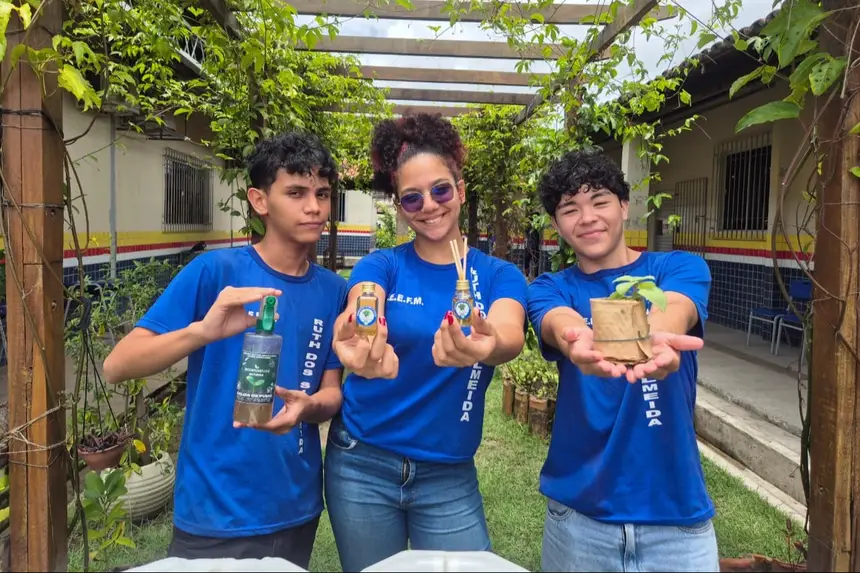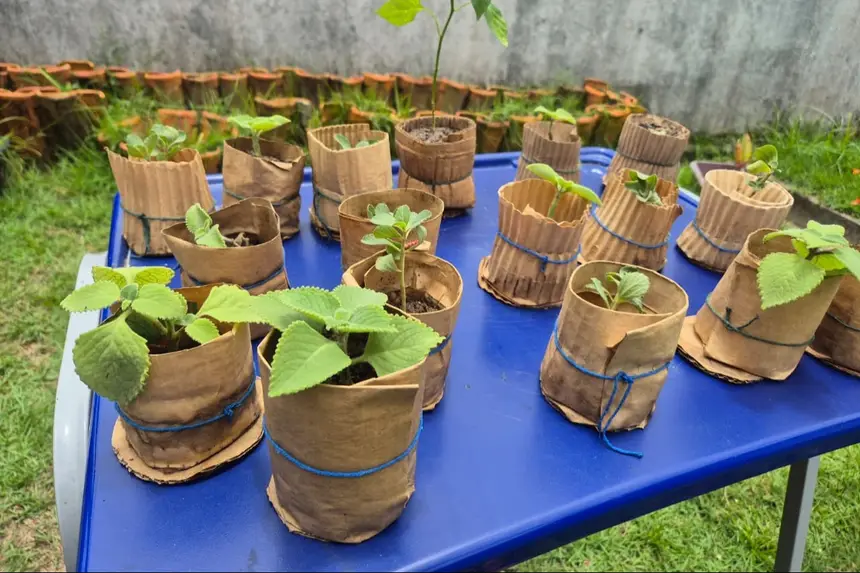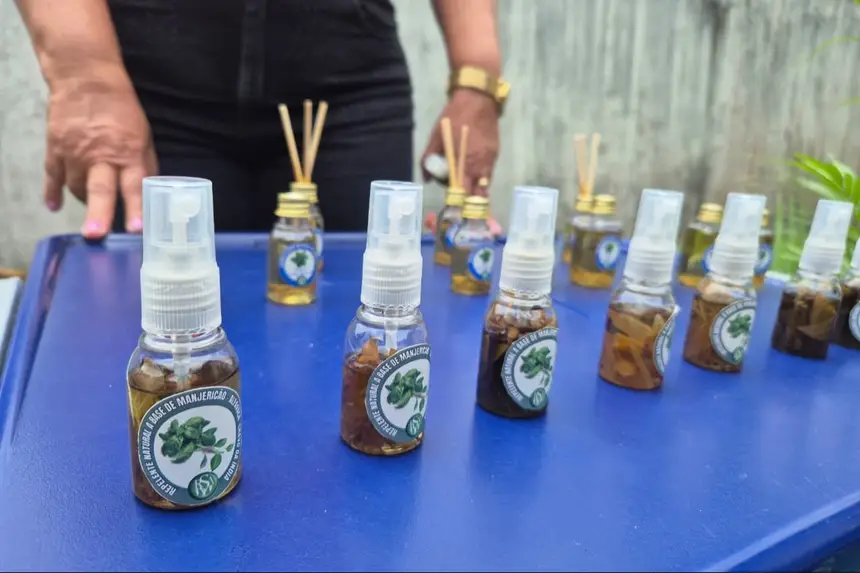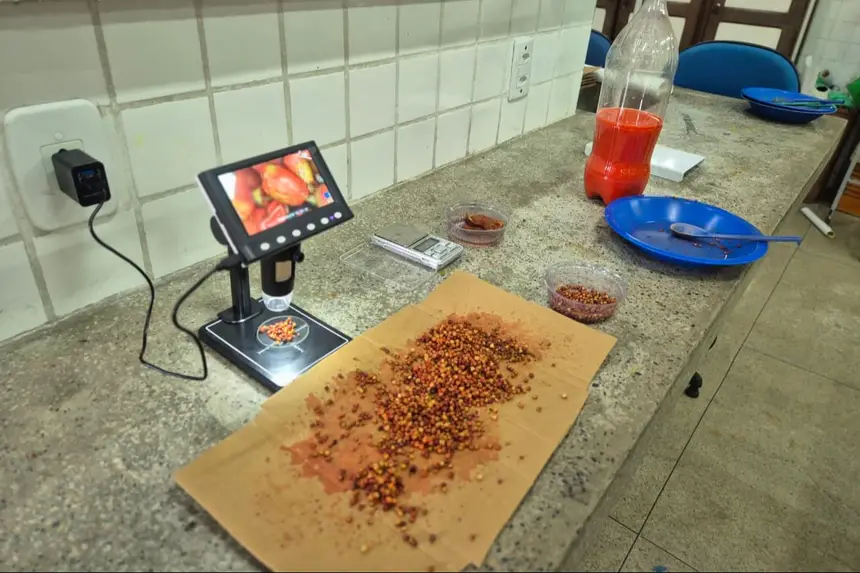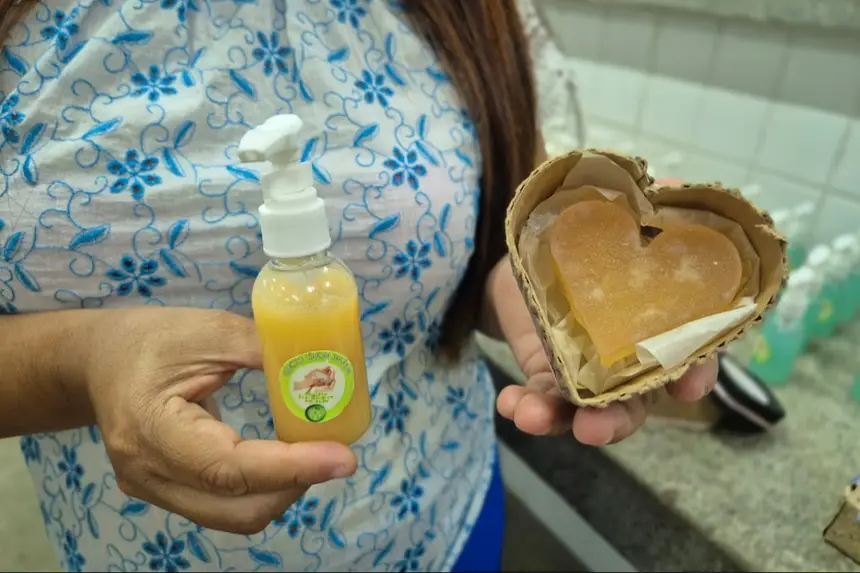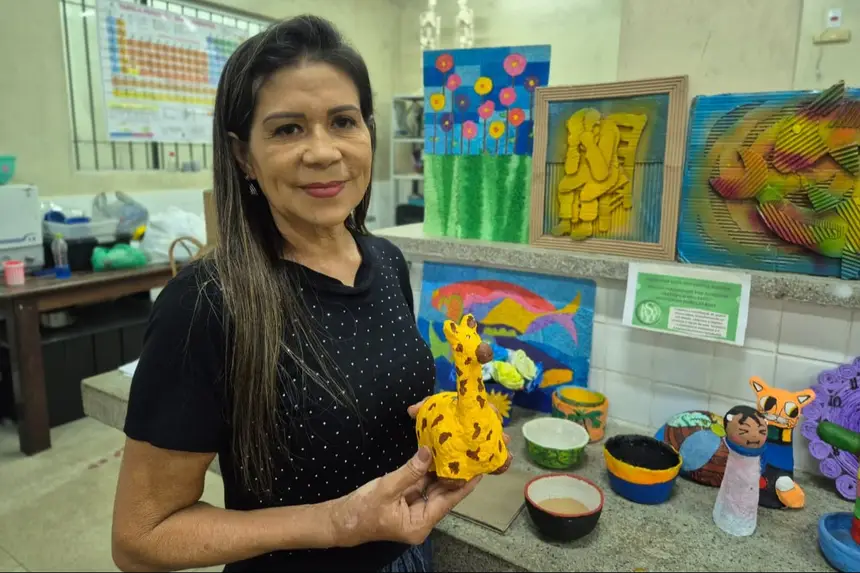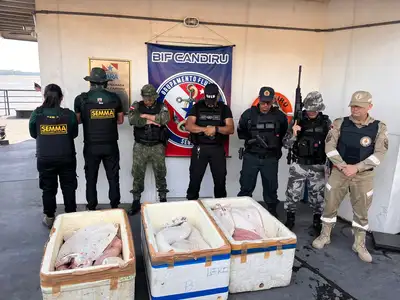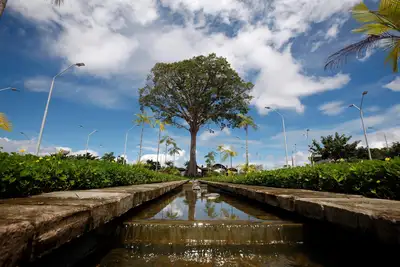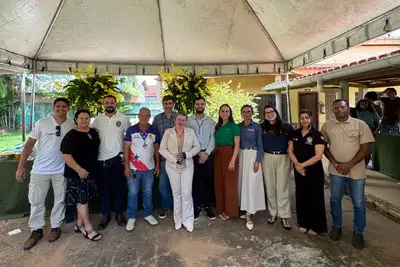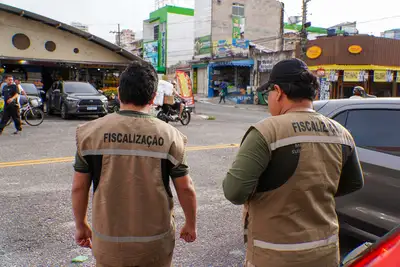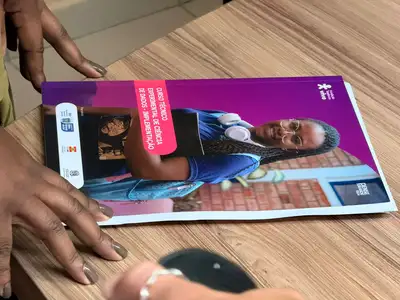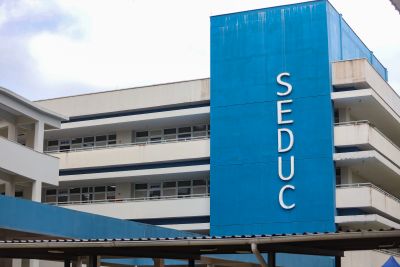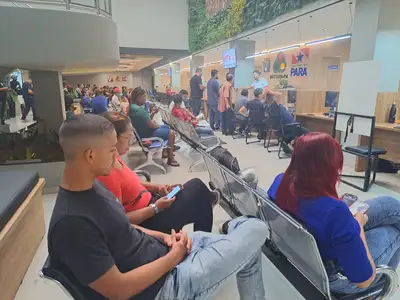Seduc celebrates Amazon Day with student leadership in sustainability and climate education
The use of annatto, ecological soap, paper recycling, and plant cultivation are some of the projects developed in the state school network
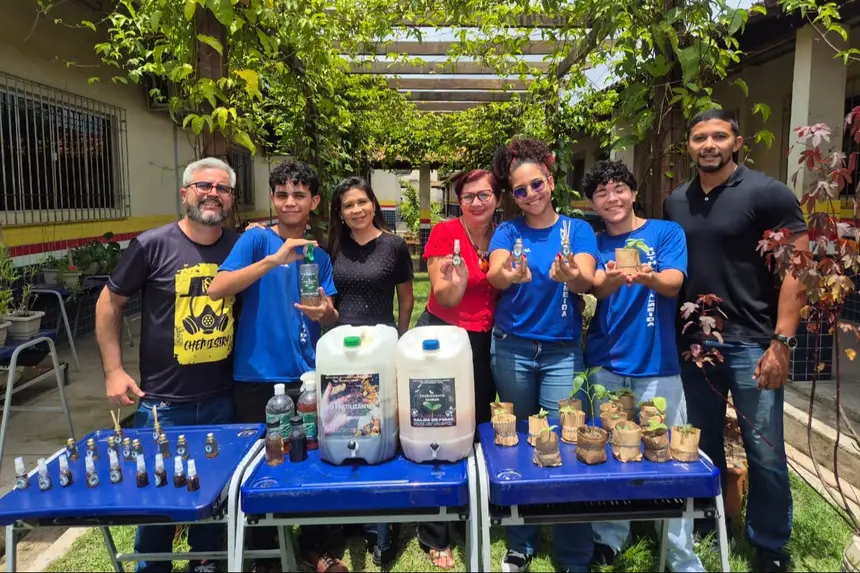
Discussions about the environment, sustainability, and climate are part of the daily routine of students from the State Department of Education of Pará (Seduc), who learn practically about the topic and have excelled with innovative projects and actions developed within Environmental Education classes. Therefore, on Amazon Day, celebrated this Friday (5), the management celebrates the leadership and engagement of students in the issue of environmental preservation throughout the State.
In Pará, the implementation of the curricular component of Environmental Education, Sustainability, and Climate, mandatory at all educational stages in state schools, has made the State a pioneer in ensuring a mandatory sustainability subject, encouraging the participation and engagement of students in discussions about fundamental agendas for Pará, whose capital will host the United Nations Conference on Climate Change (COP 30) in November this year.
Throughout the school year, state network students participate in activities that go beyond the classroom, involving community garden projects, recycling, waste reuse workshops, dialogue circles on preservation, and discussions on climate impacts. An example of this is the Ruth dos Santos Almeida State Full-Time School, located in the Maguari neighborhood in Belém, which develops numerous multidisciplinary projects with a sensitive focus on sustainability.
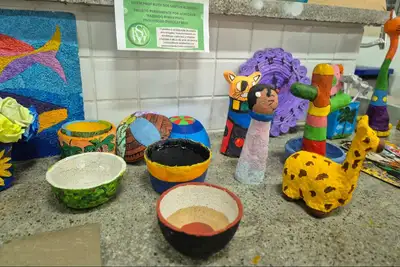
Philosophy, Art, and Chemistry are some subjects that work on sustainable projects in the educational unit. Among them are: “Making my paper,” through which students produce recycled paper, packaging, sculptures, notepads, bookmarks, decorative and utilitarian objects; “Eco-chemistry in action,” where cooking oil is reused to produce ecological soap (bar soap, liquid soap, and detergent); cultivation of plants, vegetables, and medicinal herbs within the projects “Medicinal Garden,” “Garden,” and “Green Chemistry,” which also works on the production of biopesticides, biofertilizers, and organic compost, in addition to ecologically sustainable products such as healthy brigadeiro, toothpaste, teas, and aromatic candles (made from cooking oil).
“Sustainable practices at school have generated a significant change in students' awareness and attitudes, making them more responsible and engaged with environmental issues. This impact is reflected not only in their mindset but also in the products developed, such as ecological soap, aromatic candles, and remolded paper objects, all tested and approved by the school community. These initiatives show how experimental practices have contributed to forming more conscious citizens committed to a sustainable future,” highlights Chemistry teacher and advisor for some of the projects, Arthur Silveira.
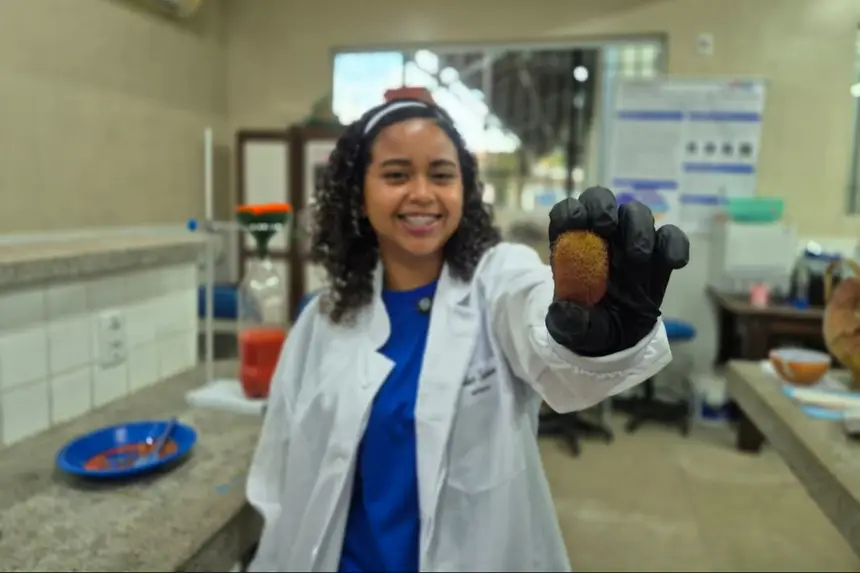
Another initiative that involves students in the school unit is the extraction of bixin, a natural pigment found in annatto seeds. The practice combines science, culture, and tradition in teaching Chemistry, as explained by Professor Arthur. “This is an experimental activity that sparks students' interest, connects chemical knowledge with cultural reality, and encourages reflections on conscious consumption. By uniting science, culture, and the environment, the school transforms learning into a meaningful experience, reinforcing the commitment to environmental preservation and the civic education of its students,” he summarizes.
For first-year high school student Ana Corrêa, practical Environmental Education classes are very important. “We reuse materials at school, like the cardboard from school meals, the cooking oil, which is also reused in soap and aromatic candle projects, so everything at school contributes to sustainability-focused projects. I think it’s super important to study this and develop it practically because we learn really cool and new things that we can take home and into our daily lives,” she stated.
Amazon Day - In addition to the environmental education and sustainability content worked on throughout the school year, schools in the network also promoted various programs in honor of Amazon Day. Presentations, exhibitions, lectures, and activities marked this Friday (5) in units across the Pará territory.
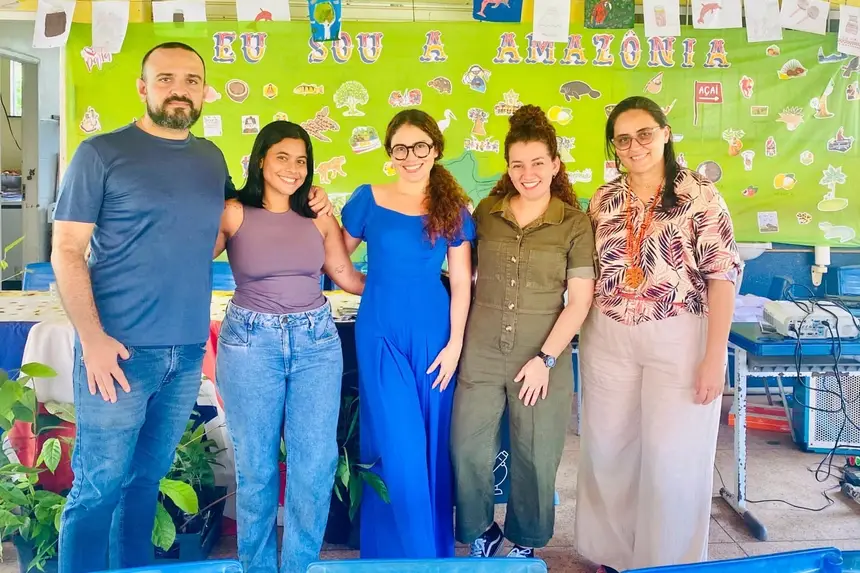
One of them was the State School Professor Marta Conceição, located on the island of Cotijuba in Belém, which promoted the exhibition “I am Amazon because…” was a highlight. The project production, within the component of Natural Sciences and Language, aimed to encourage children, young people, and adults to recognize themselves as Amazonians.
For the unit's director, Lorena Saem, this type of initiative has a direct impact on the development of students both inside and outside the school environment. “The project aims to present to the community elements of Amazonian culture such as fauna, flora, music, dance, cuisine, ancestral knowledge, and science. Covering all classes and shifts of the school. The students demonstrated the erosion process that directly impacts our slopes on the island and how planting and regenerating the riparian forest can modify this harmful action influenced by the tides on the slopes. A contagious involvement of learning and leadership. In addition to the collective construction of the ‘Mural I am Amazon because…’, there was also an exhibition of videos about COP 30,” emphasized the manager.


